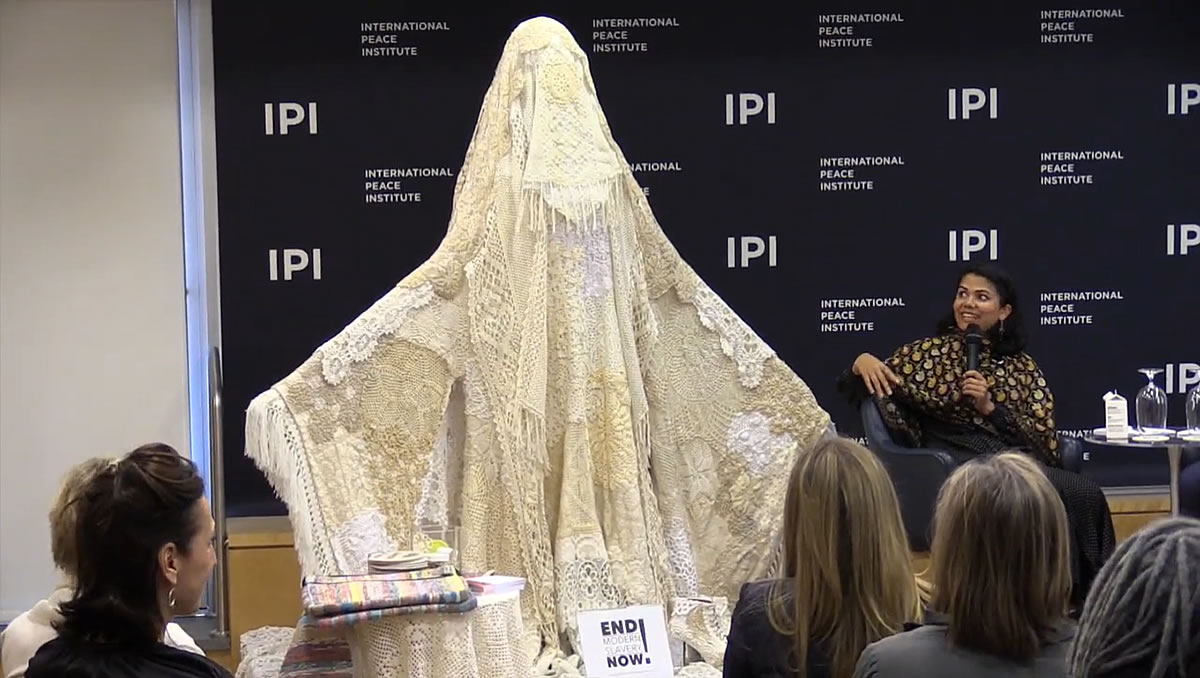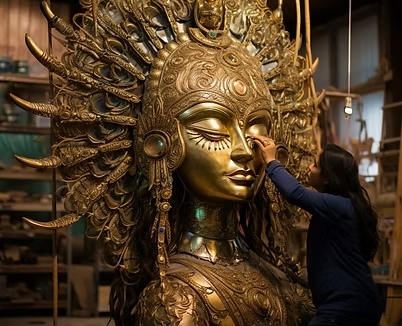Network
Culture
Blue
People
Building a Culture of Peace and Reconciliation through Art, featuring Nasreen Sheikh
Nasreen Sheikh was born in a small village near the border of Nepal and India. Her childhood lacked birth records, school, or basic rights. By age 10, she worked in a sweatshop in Kathmandu. She stitched clothing for Western brands, trapped in the shadows of modern slavery.
In that factory, she had no voice. She worked 12–15 hours a day. She earned almost nothing. She was nameless in a global system that thrived on her silence. But Nasreen decided to change her story.
A Thread of Resistance
One morning, she found the courage to leave the sweatshop. That escape wasn’t just freedom — it was the beginning of her art. She saw her trauma not as an end, but as material. She would stitch a new story — one of resistance, truth, and healing.
She founded Local Women’s Handicrafts (LWH), a collective in Kathmandu. Here, women survivors gathered not only to sew and weave, but to speak, learn, and reclaim their dignity. Each fabric told a story. Each color held a voice once buried.
Art as Healing
Nasreen didn’t call herself an artist at first. But everything she touched — scarves, poems, film — became art. Her installations mix textiles, performance, and sound. They carry the beauty and the burden of memory.
One of her most striking works, The Veil, was made for the United Nations. Woven from discarded garments and traditional fabrics, it symbolized protection — not silence. In front of global leaders, Nasreen stood beneath it and read her poem. She wasn’t just an artist. She was a survivor telling the truth, beautifully.
Creating Spaces for Peace
As her platform grew, so did her mission. Nasreen launched Empowerment Collective, a survivor-led movement to end modern slavery. She pushed for a transparent trade system — one that would finally name and value the hands behind the goods.
At an event hosted by the International Peace Institute, she performed A Table for Peace. In it, she imagined a table where enemies could sit, listen, and rebuild trust. Through art, she asked: what if peace started with one conversation?
The Story Continues
Today, Nasreen works across continents. She speaks at the UN, teaches workshops, and leads healing circles. Her upcoming documentary ANAVARANA explores the link between slavery and climate injustice.
Yet, her art always returns to one idea: a story can set you free. Hers did. And now, through her work, it helps others rise too.
Explore More
- Nasreen Sheikh Official Site
- Local Women’s Handicrafts
- Empowerment Collective
- International Peace Institute – Art for Peace
Nasreen Sheikh exemplifies how art can be a catalyst for personal and societal transformation. Her journey from exploitation to empowerment serves as an inspiration to many.





